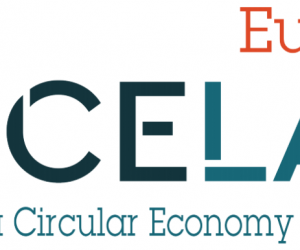

Strategic Policies to Reduce Plastic Waste
Many people would like to reduce their consumption of plastic packaging, but face barriers such as the limited availability of unpackaged goods and scarcity of nearby zero-waste stores. An IASS Policy Brief presents three strategic policy recommendations that could help reduce the consumption of packaging in everyday life.
As part of the ENSURE research consortium, environmental psychologists at the Institute for Advanced Sustainability Studies (IASS) in Potsdam have studied how policy could help people reduce their consumption of plastic packaging for food. Consumers are keen to reduce their plastic footprints: According to a representative survey carried out by the IASS scientists, 92 percent of consumers view plastic waste as a threat to the preservation of the natural environment and the foundations of life. Despite this, the use of plastic packaging in everyday life continues to grow.
Political action is needed to support people in their efforts to reduce plastic consumption. The researchers make three recommendations in their policy brief:
- Message 1: Expand the range of available unpackaged groceries
A nationwide network of easily accessible zero-waste stores is needed to promote the uptake and integration of the unpackaged concept by consumers in everyday life. We recommend the introduction of a uniform standard for unpackaged goods to support the implementation of this concept by retailers.
- Message 2: Create standardised and environmentally friendly reusable packaging systems for groceries
Policy should seek to promote reusable packaging systems based on the use of standardised containers combined with short transport routes, decentralized cleaning systems and optimized reverse logistics that result in more resource-efficient cycles.
- Message 3: Expand regional supply systems for seasonal and organic foods
A systemic approach should be taken to strengthen and expand food value chains at the regional level, with a focus on providing access to a regional and seasonal range of foods with a minimal plastic footprint as well as positive socio-ecological outcomes.
For more information, please visit https://www.iass-potsdam.de/





